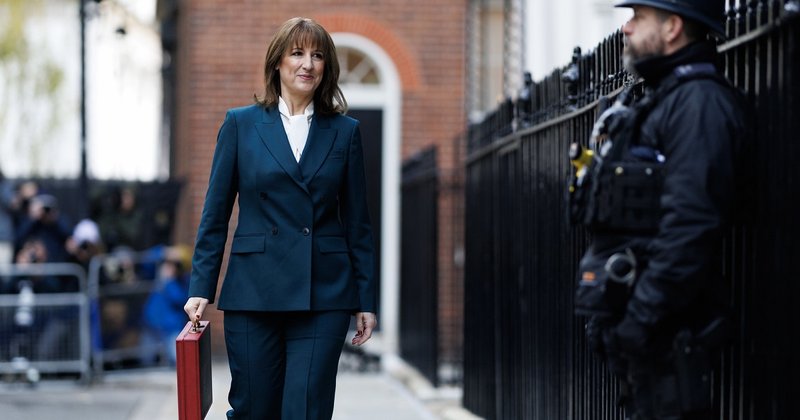Has the chancellor kept Labour’s manifesto commitments on tax?

In Wednesday’s Budget the government confirmed—as had been widely reported in advance—that it will extend the freeze on income tax and National Insurance contribution (NIC) thresholds for an additional three years. The current freeze, introduced by the previous government, had been due to end in April 2028.
The move has led many to accuse Labour of breaking its manifesto pledges, given that chancellor Rachel Reeves herself had last year linked threshold freezes to the party’s commitments on tax. Yet at the end of her 2025 Budget speech, Ms Reeves claimed to have kept “every single one” of Labour’s manifesto commitments.
So what exactly did Labour pledge in its manifesto? And does Ms Reeves’ claim not to have breached the commitments stack up?
Join 72,953 people who trust us to check the facts
Sign up to get weekly updates on politics, immigration, health and more.
Subscribe to weekly email newsletters from Full Fact for updates on politics, immigration, health and more. Our fact checks are free to read but not to produce, so you will also get occasional emails about fundraising and other ways you can help. You can unsubscribe at any time. For more information about how we use your data see our Privacy Policy.
What was pledged in the manifesto?
The wording of Labour’s manifesto pledges on tax has already been closely scrutinised, and its meaning disputed, in the wake of last year’s increase in employer National Insurance contributions. We’ve written in detail about that here.
Labour’s 2024 election manifesto said: “Labour will not increase taxes on working people, which is why we will not increase National Insurance, the basic, higher, or additional rates of Income Tax, or VAT.”
Freezing personal tax thresholds means people pay more tax than they would if thresholds rose with inflation. As wages increase over time, more of someone’s income becomes taxable, whether at basic or higher rates. This is known as fiscal drag.
Crucially, at last year’s Budget, the chancellor herself appeared to say that extending threshold freezes would break the manifesto pledge for this reason, saying at the time: “I have come to the conclusion that extending the threshold freeze would hurt working people. It would take more money out of their payslips.
“I am keeping every single promise on tax that I made in our manifesto, so there will be no extension of the freeze in income tax and national insurance thresholds.”
Those comments had been widely quoted in advance of the 2025 Budget, and Ms Reeves referenced them directly in her speech on Wednesday, saying: “I know that maintaining these thresholds is a decision that will affect working people. I said that last year and I won't pretend otherwise now.”
The government now appears to be arguing that Labour’s manifesto commitments apply only to the rates of income tax and NICs, and that therefore the extension of the threshold freezes doesn’t break its pledge. Speaking to Sky News following the Budget, Ms Reeves said “in the manifesto we were very clear it was the rates of income tax and National Insurance and VAT”, though she also acknowledged that the freeze extension was “asking ordinary people to pay a little bit more”.
The wording in Labour’s manifesto about not increasing income tax is clear that it applies to “rates”, for “working people” at least. It doesn’t explicitly mention the thresholds at which income tax rates apply.
Its commitment on National Insurance is less specific, however, and the wording doesn’t appear to clearly relate only to rates.
Ahead of the Budget the Institute for Fiscal Studies (IFS) said extending the freeze on NICs thresholds “would increase NICs, breaking Labour’s manifesto pledge”. And it’s said the same again since, arguing in its initial response to the 2025 Budget: “Because it includes a freeze in National Insurance thresholds, it also breaches the government’s manifesto tax promise not to increase National Insurance.”
The think tank also said it believes the cap on NICs-exempt salary sacrifice pension contributions in this year’s Budget breaches Labour’s commitment to “not increase National Insurance”.
And the IFS repeated its previous view that the increase in employers’ National Insurance in last year’s Budget was a breach of the manifesto, based on the fact that the government did not specify which type of NICs its pledge applied to. As noted above though, this is disputed, with Labour arguing its commitment on National Insurance applied specifically to “working people” rather than employers.
We’ve contacted the Labour party for comment. The Treasury did not offer any official comment when asked.